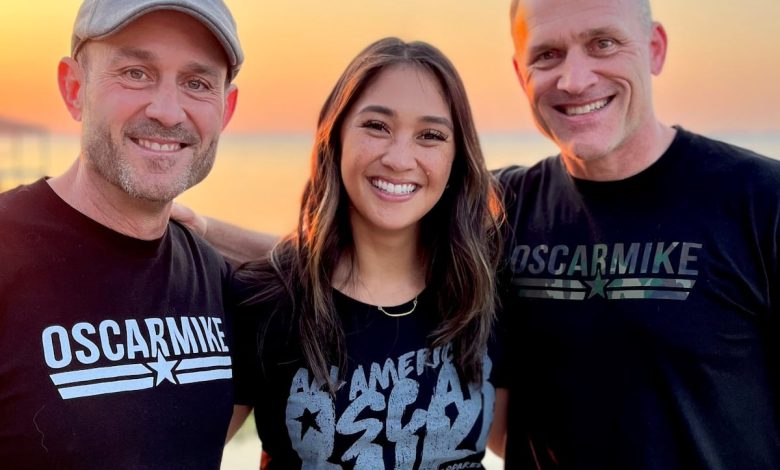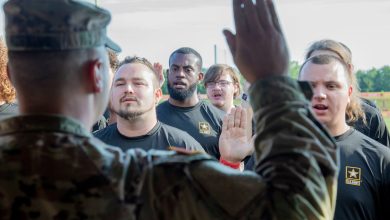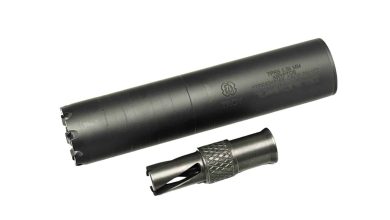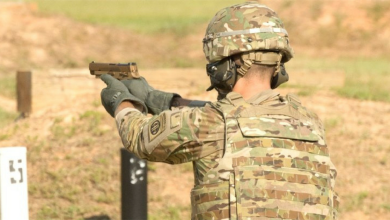DOD looking for more companies to hire military spouses for program

It didn’t take long for ZeroMils to realize the talent and skills Navy wife Trish Bautista brought to their mission. Just two months into her three-month Defense Department-funded fellowship program for military spouses, she accepted the consulting company’s offer for a full-time job as associate director of partnerships.
She began the fellowship in April 2023, a few months after the DOD launched the Military Spouse Career Accelerator Pilot, or MSCAP, program, where spouses are matched with participating companies and DOD pays the salaries of the spouses during the 12 weeks.
The hope is that companies will hire them full-time as a result of the fellowship, but there’s no guarantee. This program is one of a number of DOD initiatives to tackle the issue of military spouse unemployment, exacerbated by a lifestyle that involves frequent moves. The military spouse unemployment rate has remained persistently above 20% for over a decade.
Bautista is one of 703 spouses who have completed fellowships under the pilot program. Of those, about 600 have received employment offers from their host employer, more than five times the number from a year ago.
The program first started accepting applications in December 2022.
Defense officials are pleased with the outcomes of the career accelerator program, said DOD spokeswoman Jade Fulce. However, she said, “we need to continue to grow the employer host pool.”
“The employment offer rate is proof in the value that military spouses bring to an organization, and can be a key recruiting tool for employers across industries,” Fulce said.
Employers can find information here.
The pool of employers hosting spouse fellows has nearly tripled over the last year, from 129 to 370. But the number of spouses who have completed applications has also tripled, going from 1,000 to over 3,000. Of those, 807 have been placed into fellowships.
The pilot is slated to continue through 2026, so officials encourage military spouses to continue to apply, Fulce said. MSCAP is open to spouses of currently serving members of the Army, Navy, Marine Corps, Air Force and Space Force, to include active, reserve and National Guard components.
MSCAP was expanded earlier this year to include “skills-based” fellowships with more entry-level positions, and 68 spouses have been placed into those fellowships. Spouses are identified as candidates for skills-based fellowships based on their education and experience, Fulce said. When MSCAP began, it was open to “career-ready” spouses.
To date, 643 spouses have completed their traditional fellowships, and 560 of them, or 87%, received employment offers from their employer hosts, Fulce said. Of the 60 spouses who have completed skills-based fellowships, 40 have received employment offers. The average annual salary offered to the traditional fellows is $68,000, and for skills-based fellows, $48,000.
The U.S. Chamber of Commerce Foundation’s Hiring Our Heroes, through a contract with DOD, pairs applicants with fellowships that match their location, work experience and other factors. The number of fellowships available depends on what employers offer.
DOD pays spouse fellows’ salaries through the Chamber.
Applications are accepted throughout the year. Congress has appropriated $10 million for the MSCAP program to date, with the vast majority of funding going to the compensation for spouse fellows, Fulce said.
Spouses are in fellowships across multiple industries, such as information technology, project management, administration, human resources, and many other sectors, Fulce said. While 60% of the fellowship opportunities have been for remote work, spouses shouldn’t count on just remote work, she said. Spouses are participating in the program from more than 27 states.
Bautista is associate director of partnerships for ZeroMils, a social impact consulting firm, where she does strategic planning for fundraising for nonprofits, among other things.
She had been out of the work force for about two years when she started her fellowship, taking some time to adjust after her first permanent change of station move as a spouse, and to finish her master’s degree. As she was finishing, she began looking for remote positions in the nonprofit world. Over the course of four or five months, she said, “I had a couple of interviews throughout the process, but nothing really stuck.”
Then her husband, a Navy corpsman, read about the launch of the career accelerator program. Once she applied in February or March, 2023, she said, “The process was pretty quick.”
When ZeroMils hired Bautista, eight weeks into her fellowship, they paid her a signing bonus. It amounted to the difference between what she was being paid by DOD during the fellowship and what she could have been making at full salary during that time, said ZeroMils co-founder and CEO Kevin Schmiegel.
“She’s been with us ever since,” he said. The small but growing company has hired two spouses under the program, and they’re looking at hiring a third. Hiring military spouses “is not about what’s the right thing to do. Honestly this is so right for your business,” Schmiegel said.
One of the biggest benefits of the program was the networking opportunities it offers, Bautista said.
“I took that for granted,” she said. “I undervalued connections and networking in this space, and realized really quickly while I was going through the fellowship that that was going to be key, not just for my current fellowship and my potential employment with ZeroMils, but in the future.”
She said she appreciated getting to know other spouse fellows, and hearing about their experiences.
“Having all those connections and realizing we’re all in this together, and we’re probably in this together for a long time, is super valuable,” Bautista said.
“I’m still connected with them.”
Karen has covered military families, quality of life and consumer issues for Military Times for more than 30 years, and is co-author of a chapter on media coverage of military families in the book “A Battle Plan for Supporting Military Families.” She previously worked for newspapers in Guam, Norfolk, Jacksonville, Fla., and Athens, Ga.
Read the full article here







